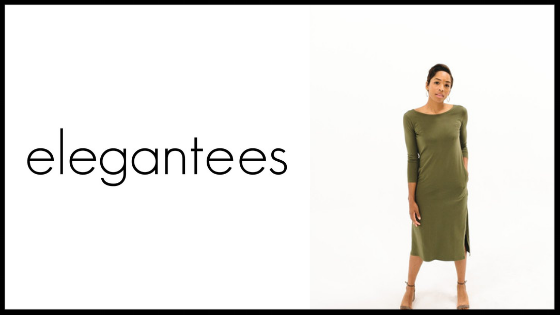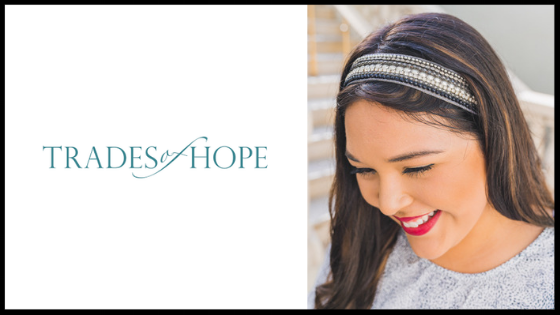Fashion Companies making a difference for survivors of sex trafficking
I was eighteen when I got my first job. I needed gas money, so I filled out an application and I interviewed. For the last three months of the school year, I worked as a rock climbing instructor at the YMCA. I had the choice to work, and I had the choice to quit.
This is not the case in the sex-trafficking industry.
For this reason, it is important to ensure that when sex-trafficking survivors are empowered to leave the trafficking industry, they know they will be supported, treated as humans with rights, given the choice to work (and where to work), and have the chance to flourish as independent people. Dignified work is the first step in this direction, through which survivors are assured jobs that not only protect them from being re-trafficked, but give them the opportunity to identify as more than just a survivor.
Accordingly, we want to highlight the following fashion companies that specifically work on behalf of sex-trafficking survivors, fighting to provide a safe and respectful workplace for them, while also giving them hope for their independent futures and dignified identities.
Based in Nepal, Elegantees uses organic cotton, supplied by chemical-free farms in India, and employs women coming out of trafficking situations. Each seamstress is able to earn 2-to-3 times the minimum wage in Nepal, working six days per week and with paid time off.
A Dressember Brand Partner that works to “restore hope to exploited women in Asia,” Starfish Project works not only to employ sex-trafficking survivors, but also to provide holistic care programs that offer vocational training, shelter, healthcare, counseling and educational grants.
With comfortable (and affordable!) fashion, Sudara employs women who are looking to get out of the red-light districts of India, providing “safe, steady and living-wage employment [as] a pathway to freedom and [choice] for women and their families.”
Working with their social enterprise, Purpose Jewelry, iSanctuary provides holistic care and job opportunities for women escaping human trafficking in California and Mumbai, India.
People Tree actively stands against the exploitation that “fast fashion” entails, instead taking up the diligent work of “slow fashion,” meaning each item of clothing purchased is meticulously fabricated with organic cotton and dyes by the hands of artisans in the developing world.
The goal of ABLE is to end generational poverty, and thus end the need for women to turn to prostitution. ABLE takes pride in publishing their working wages of $14.00/hour, which is 126% more than the living wage in Nashville, TN! This is a transparency that few, if any, other companies reveal. Working with such wages, impoverished women of Ethiopia, Mexico, Peru, and beyond sew passion into their products, including clothing, footwear, denim, jewelry and leather goods.
With Sari Bari, sex-trafficking survivors of Kolkata, India’s red-light district, work to make bags, home decorations, and baby products out of second hand saris. Each product bought is also labeled with the name of the artist who sewed it!
Freeset focuses on the women of West Bengal, India––the women who have been pulled into slavery and “have never had the choice to be free.” Working with India’s cotton and jute industry, Freeset employs these women to produce fair trade tees, bags, and handwoven fabrics to fight back and to make freedom a right, not an uncommon privilege.
Another one of Dressember’s Brand Partners, Noonday Collection partners with and develops artisan businesses through fair trade. Their products consist of jewelry, bags and accessories, produced by artisans of all different backgrounds and cultures. Women can become ambassadors and host trunk shows, 10% of which help adoptive families bring their children home. So, as a consumer, you are able to support global artisans, as well as, adoptive families!
If you’ve been keeping up with the Dressember blog, you’ll remember this spring’s interview with Elisabeth Huijskens, founder of Trades of Hope. While jewelry is the biggest product of Trades of Hope, it is the artisans that matter most. Here, artisans are paid on a “partnering business,” meaning they are paid by Trades of Hope whether their products are purchased or not––an expense taken on personally by the organization!
And that’s not all! Check out the list below for other ethical companies that ensure dignified work for sex-trafficking survivors!
Your dollars have the power to empower survivors, so let’s keep these companies in mind when shopping!
It is not too late to be a part of the impact!
Right now, thousands of people around the world are taking on the creative challenge of wearing a dress or tie in the month of December. The reason? To bring freedom to the 40+ million around the world still trapped in slavery. Your donation or participation in Dressember 2018 is part of a movement to end human trafficking for good.
About the Author
Emily James is currently a junior at Azusa Pacific University, pursuing an English degree with a concentration in Writing. She has big plans to travel, see the vibrant colors of the world, and to write of the marginalized and unheard people she meets along her nomad journey (Dressember is fitting!). When she is not in class or working as an elementary reading and writing tutor, she loves to rock climb, hike, read, and watch romance movies with the girls.













